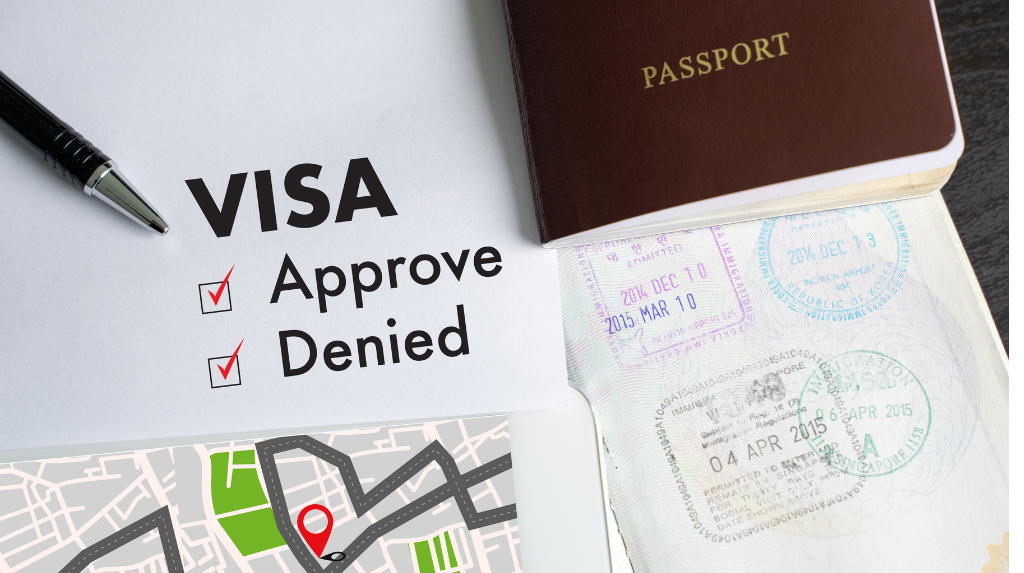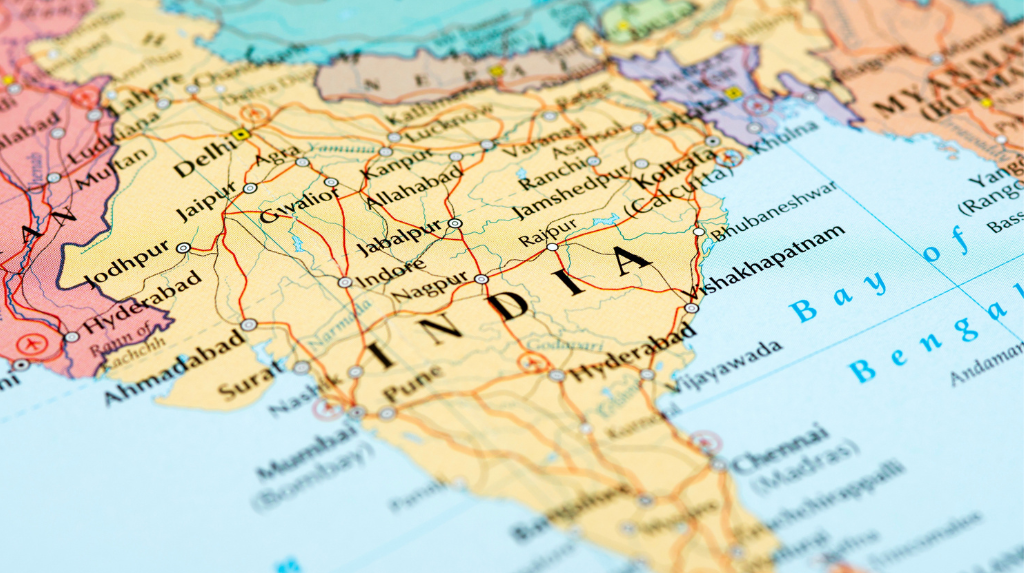If you have ever been refused an Indian visa, you might be wondering if there is still a chance to obtain one in the future. The visa application process can be complex and sometimes result in rejection, leaving applicants disheartened. However, it is important to know that a visa refusal does not necessarily mean the end of the road. In this article, we will explore whether it is possible to get an Indian visa after refusal and discuss the steps you can take to improve your chances.
Obtaining a visa to visit India is a prerequisite for many travelers. Whether you plan to visit for tourism, business, education, or any other purpose, the visa application process plays a crucial role. However, not all visa applications are successful, and applicants may face rejection for various reasons. Despite the disappointment, it is important to know that a visa refusal is not the end of your Indian travel dreams.
Understanding Visa Refusal
Visa refusal occurs when an application does not meet the requirements set by the Indian government. The reasons for refusal can vary and may include incomplete documentation, discrepancies in information provided, failure to meet eligibility criteria, or concerns regarding the applicant’s intentions. It is essential to understand the specific reason behind the refusal to address it effectively in any subsequent application.
Reasons for Indian Visa Refusal
Incomplete or Incorrect Documentation: Providing incomplete or incorrect documents is a common reason for visa refusal. It is crucial to carefully review the visa application requirements and submit all the necessary documents accurately.
Lack of Financial Proof: Indian visa applications often require applicants to provide evidence of sufficient funds to cover their stay in the country. Failure to provide satisfactory financial proof can lead to a visa refusal.
Past Visa Violations: If an applicant has previously violated visa regulations or overstayed their permitted duration during a previous visit to India, it can negatively impact future visa applications.
Criminal Record: Having a criminal record, especially for offenses related to national security or moral turpitude, can lead to a visa refusal.
Inadequate Purpose of Visit: The purpose of your visit to India should be clearly stated and align with the visa category you are applying for. If the purpose is unclear or does not match the visa type, it can result in refusal.
Reapplying After Visa Refusal
Receiving a visa refusal does not mean you should give up on your plans to visit India. You can reapply for an Indian visa after refusal, but it is essential to take certain steps to improve your chances of success. Here are some key considerations:
Analyze the Refusal Letter: Carefully review the refusal letter provided by the Indian embassy or consulate. It will contain specific information about the reason for refusal. Understanding the grounds for refusal will help you address the concerns effectively in your subsequent application.
Rectify Errors: If the refusal was due to errors or discrepancies in your application or supporting documents, make sure to rectify them in your reapplication. Pay close attention to details and ensure all information provided is accurate and up to date.
Strengthen Your Case: If the refusal was due to inadequate financial proof or unclear purpose of visit, take steps to strengthen your case. Provide additional evidence of sufficient funds and clearly articulate the purpose of your visit in your new application.
Provide Explanatory Documents: If there were specific circumstances or misunderstandings that led to the refusal, consider providing explanatory documents along with your new application. These documents can help clarify any concerns and provide a more comprehensive view of your situation.
Addressing the Reasons for Refusal
To increase your chances of obtaining an Indian visa after refusal, it is crucial to address the specific reasons mentioned in the refusal letter. Here are some tips for addressing common refusal reasons:
Complete Documentation: Ensure that you submit all the required documents accurately and in their entirety. Double-check the checklist provided by the Indian embassy or consulate to avoid missing any documents.
Financial Stability: If the refusal was due to insufficient financial proof, provide updated and comprehensive financial documents that clearly demonstrate your ability to cover your expenses during your stay in India.
Genuine Intentions: If your intentions for visiting India were unclear or questioned, make sure to provide a detailed and genuine explanation in your new application. Clearly state the purpose of your visit, whether it’s tourism, business, education, or any other valid reason.
Legal Compliance: If the refusal was a result of past visa violations, emphasize your commitment to adhering to the rules and regulations. Provide any relevant documentation, such as proof of previous compliance or any rectification measures taken.
Seeking Professional Assistance
If you are unsure about the reapplication process or need guidance to improve your chances of success, it is advisable to seek professional assistance. Immigration consultants or visa experts with expertise in Indian visa applications can provide valuable insights and help you navigate through the process effectively.
Additional Tips for Reapplying
Here are some additional tips to consider when reapplying for an Indian visa after refusal:
Submit a Neat and Well-Organized Application: Ensure that your application is neatly filled out, and all documents are well-organized. This will create a positive impression and make it easier for the visa officer to review your case.
Follow Instructions Carefully: Pay close attention to the instructions provided by the Indian embassy or consulate. Failure to comply with the guidelines can lead to unnecessary delays or further refusals.
Be Transparent and Honest: Provide accurate and honest information in your application. Transparency is crucial in establishing trust and credibility with the visa officer.
Plan Sufficient Processing Time: Submit your application well in advance of your planned travel dates. Processing times can vary, and allowing ample time ensures that you are not rushed and have time to address any additional queries or requests from the embassy.
Maintain a Positive Attitude: Despite the initial refusal, maintain a positive attitude throughout the reapplication process. A positive mindset can help you present your case effectively and increase your chances of obtaining the visa.
Receiving a visa refusal can be disheartening, but it does not mean that obtaining an Indian visa is impossible. By understanding the reasons for refusal, rectifying errors, addressing concerns, and seeking professional assistance when needed, you can significantly improve your chances of obtaining a visa to visit India. Remember to approach the reapplication process with a positive mindset and diligently follow the guidelines provided by the Indian embassy or consulate.
FAQs
Can I apply for an Indian visa after being refused previously?
Yes, you can reapply for an Indian visa after refusal. However, it is crucial to address the reasons for refusal and take steps to strengthen your application.
How can I address financial concerns after a visa refusal?
Provide comprehensive and updated financial documents that clearly demonstrate your ability to cover your expenses during your stay in India.
Is it necessary to seek professional assistance for reapplying?
Seeking professional assistance is not mandatory but can be beneficial, especially if you are unsure about the reapplication process or need guidance to improve your chances of success. Immigration consultants or visa experts can provide valuable insights and help you navigate through the process effectively.
Should I wait for a certain period before reapplying?
There is no specified waiting period after a visa refusal. You can reapply as soon as you address the concerns mentioned in the refusal letter and strengthen your application.
Will a visa refusal impact future visa applications?
A visa refusal may impact future visa applications, as it becomes part of your immigration record. However, by addressing the reasons for refusal and presenting a strong application, you can overcome the previous refusal and increase your chances of obtaining a visa.
In conclusion, while receiving a visa refusal can be discouraging, it is possible to obtain an Indian visa after refusal. By understanding the reasons for refusal, rectifying errors, addressing concerns, and presenting a strong application, you can significantly improve your chances of a successful visa application. Remember to approach the reapplication process with a positive attitude, seek professional assistance if needed, and carefully follow the guidelines provided by the Indian embassy or consulate
Do you need support with your Indian visa application?
Contact our team of skilled immigration lawyers to discuss your visa and immigration needs.
Call us on +234 812 5505 986 or WhatsApp us at +234 818 1547 085 for immediate assistance with your situation. We are available to assist you in person, over the phone, or online.
.





